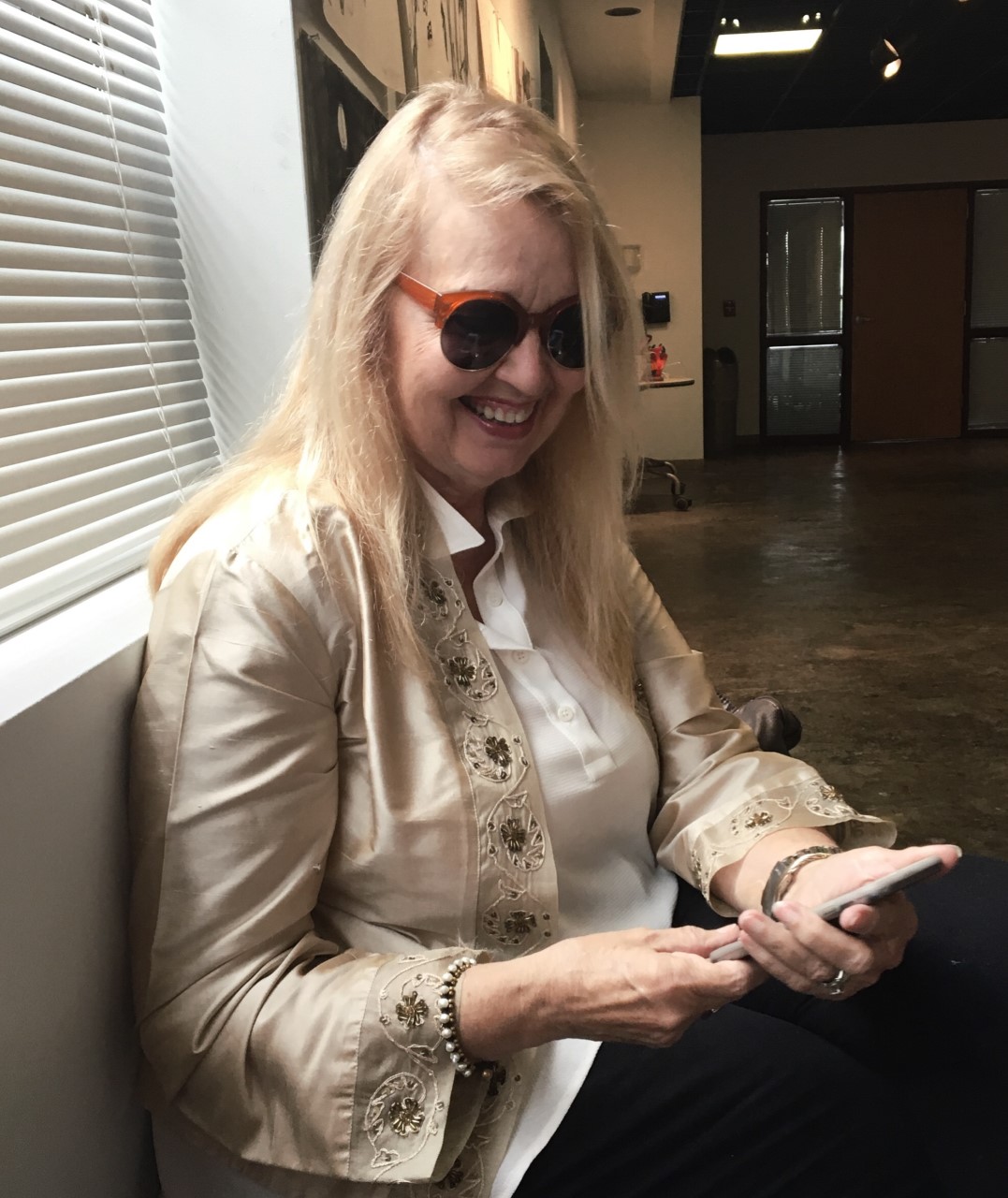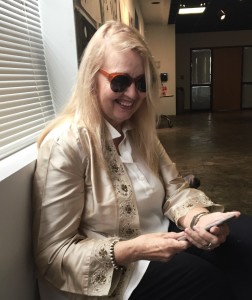

Jackie Warren is an artist and Associate Professor at Drury University. Her work has been shown across the world. In a recent interview she talked to The Scoop about her inspirations and shared her views on art. Meet the passionate, creative soul that is Jackie Warren.
What is your own definition of art?
My definition is life. It’s the same it doesn’t separate itself. For me it’s like what I do on my day off, or time off, or for fun is what I do also or for life it’s the same- it’s a cycle.
What makes an art piece great?
When I think of greatness it comes through the way it communicates. I think if it has a meaning, or a message, or it connects to a memory. I think a connection is made through the viewer and it is not easy to do that. So, it’s really the viewer that decides.
So the viewer decides if it’s great or not.
And I think a certain amount of history will help decide.
What do you mean by history?
History like time, like over a long period of time. Greatness is understood. I had a professor once that said, “It doesn’t matter how hard you work if the muse is not on your shoulder, it’s not good, it won’t happen. “ And so he believed that there was (a) certain kind of miraculous moment that presents itself. So, you have great days and you have good days, you have days in which everything you do is just okay, but it’s hard, you cannot control that. There is a certain kind of magic that happens as an artist, and sometimes that magic goes away for a long time.
What makes the magic, “magic”?
I think it’s that connection that people see in your work. And I have known a lot of people whose work I admire and they go through a period in which they are not working, and they have too many personal complications that get in the way of thinking about their work. It’s interesting that you can have high periods and low periods as an artist, whether it is music you are writing, or poetry, or novels, or painting. There are some things that happen that are just wonderful, and you just don’t know where they came from, it comes from a mystical place.
When you say low periods you mean, how much inspiration?
Inspiration and also I think you have to be open to the process of making art, of making something. If you are open and intuitive and not trying so hard, I think that’s when greatness can happen and if you are really trying to control everything I think it just becomes mediocre.
What makes your art special, like for example Vincent van Gogh, he had his mental illness when made his lines very rigid strong and repetitive, so what makes your art special, what technique?
I think my personal work that seems to connect to people and make the most positive response is work that comes from my experiences, from my living and my experiences, things I look at, and things that translate back to me a certain power. Because I live in a foreign place part of the year, that gives me the greatest inspiration. It’s unique, it’s beautiful, but yet its old, full of history and time and I love that. I couldn’t live next to a mall and paint. (chuckles) I have to go to some place that has some spirit.
Is it Italy?
Yes. (laughs)
Art, generally, in societies is usually undermined. For example medicine or engineering is more considered or seen as great and on the other side many really good artists with real quality work are undermined. Why do you think so?
Well, I think culturally we have become naïve. I think the ancients knew and appreciated an artist and the artist was the person in the community which was the most unique and admired. I noticed in Europe as a teacher I am much more respected as a teacher than in America. In America, it is like if you want to have the successful career, teaching is not the top of the list, but in Europe it is. And you are called a “mystro”, and a “master” you are called a “doctor” and so the importance of the creative life is the core of everything and we have lost that in the society. Gandhi knew it. The Dalai Lama knows it. They talk about if you get up in the morning and you think of something creative and you have a moment of just taking and just sitting something on the table and that experience is the key to having a wonderful day. But I think that our culture, especially the western culture, has lost how to really look at life, and the way you live as an artist. I think it is there, it is there when you are a child but somewhere around the age of seven and eight it starts to change and unless the parents are very aware, they let that happen. They let that awareness of living your life creatively not be important, that is more about technology and science. I mean the most scientific things in the world were found through a creative process.